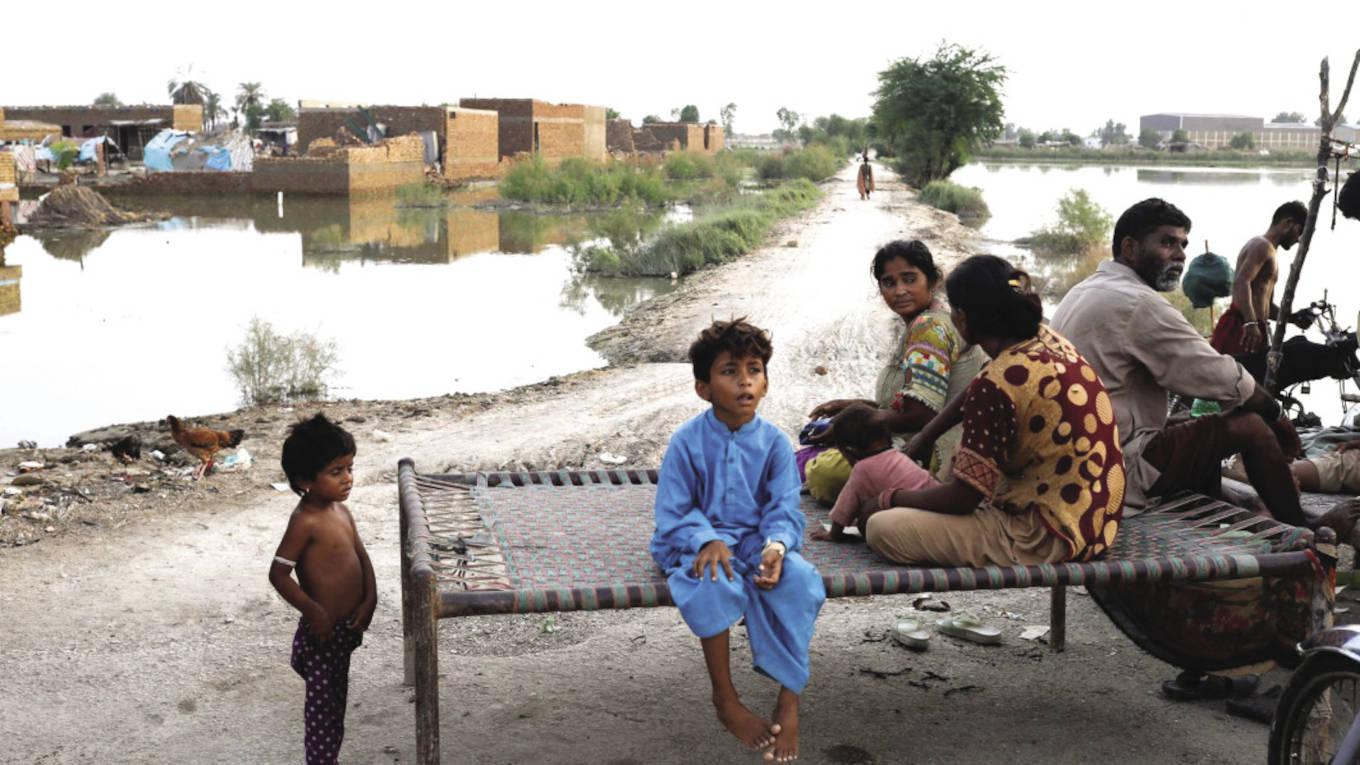-
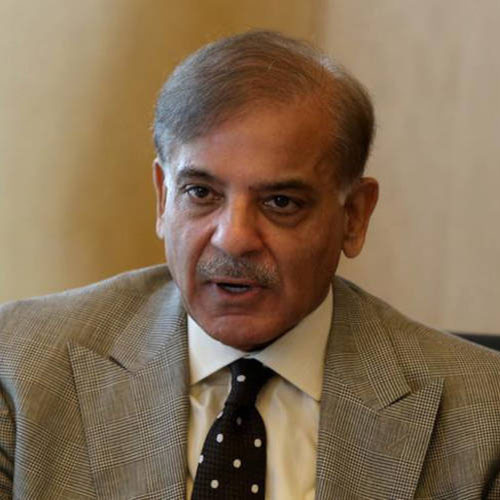
Sharif: there can be no imports from India, come what may
Leadership role
Seventy-five years after Independence, India is a proud member of the league of leading nations, having just edged out the UK as the fifth biggest economy. Its growing and technologically-advancing economy is raising living standards and creating opportunities for hundreds of millions of people. In 2021, India contributed 10 per cent of global growth on a purchasing power parity basis. What happens in India should affect not just its 1.4 billion citizens, but the rest of the world as well, particularly this region.
While the merits of bilateral trade and business engagement between India and Pakistan are well known and documented, scientists say there is another reason why India should seriously engage with Pakistan. Climate change and its consequences are affecting our subcontinent.
The devastation that Pakistan is facing owing to floods is not just the result of weather change but a significant rise in glacier melting in Himalayas. The snow and ice on the Himalayas and its glaciers are melting which has caused floods in Pakistan and droughts in China.
This year, Pakistan witnessed a 400 per cent increase in average rainfall in areas like Baluchistan and Sindh, with over 20 dams breaching their threshold. The continuous melting of ice and snow in the Himalayas has led to 30 million people being affected, submerging not just farmlands but also cities.
Climate worries for India
India should be worried because the Himalaya, Karakoram, and Hindu Kush Mountain ranges contain almost 55,000 glaciers that feed river systems in the subcontinent. India has 16,627 glaciers which have also started melting at an alarming rate. If 7,000 glaciers could inflict such catastrophe on Pakistan, one shudders to think of what will happen to India.
Scientists from IIT Roorkee, studying the phenomenon of glacier melt, point to the intense heat wave which hit India in early summer this year when temperatures in March and April broke 100-year records. There has also been resulting glacial melt. While glacier melt can aggravate floods, they can also deprive us of our sources of water. That is why India and Pakistan need to cooperate on a scientific plane to assess the damage to our environment and the dangers inherent in climate change.
Following the floods, Pakistan has begun demanding reparations, or compensation, from the rich countries that are mainly responsible for causing climate change. In repeated public statements, Pakistan’s Minister for Climate Change, Sherry Rehman, has been saying that while her country makes negligible contribution to global warming, it has been among the most vulnerable to climate change.
The current floods have caused damage worth billions of dollars. Rehman has argued that rich nations owe reparations to countries like Pakistan for the consequences of climate change. The demand for reparations appears to be a long shot. Almost the entire developing world, particularly the small island states, has for years been insisting on setting up an international mechanism for financial compensation for loss and damage caused by climate disasters. The issue has come up repeatedly at international climate change negotiations, and on other platforms, but to no avail.
It is not hard to understand why the developed countries are dead against compensation claims which flow from the Polluter Must Pay Principle. They are struggling to put together even the $100 billion per year flow that they had reluctantly agreed to provide. A more workable option for Pakistan is to work with India on climate change, given our common geography.
-
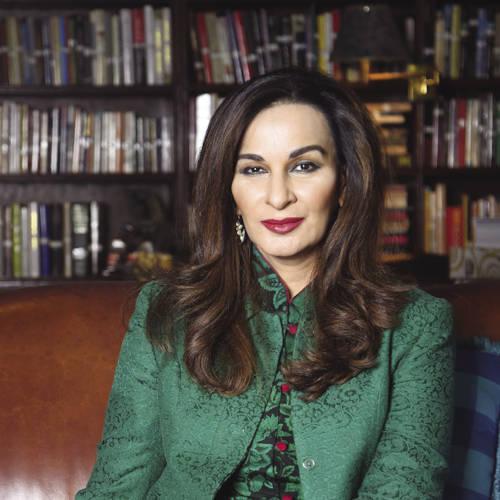
Rehman: rich nations owe reparations to countries like Pakistan for the consequences of climate change
Petty politics in Pakistan
The way things are panning out in Pakistan, the country has even turned to Iran and Afghanistan for onions and tomatoes. It is not clear to what extent the two neighbours can oblige Pakistan. While Pakistan’s best bet lies in opening up to India, its politicians, however, have found fit to play petty politics on the issue. Recently, Pakistan’s federal Finance Minister, Miftah Ismail wanted it to import at least vegetables from India to tide over the food crisis.
But the Opposition, led by former Prime Minister Imran Khan, kicked up a row over the proposal. Prime Minister Shehbaz Sharif has launched an international appeal seeking funds for relief and rehabilitation. However, under political duress, Sharif and his uneasy coalition government say that for now there can be no imports from India, come what may.
Diplomatic observers point out that this is a reminder of what the late Zulfiqar Ali Bhutto had once said: “Pakistanis will eat grass but will have the bomb.” Bhutto, the grandfather of incumbent Foreign Minister Bilawal Bhutto Zardari, had contributed largely to the separation of Bangladesh from Pakistan in 1971 when he refused to let the majority party (Awami League of Sheikh Mujibur Rehman) form the government there.
It is not that politicians in Pakistan do not recognize the need to enhance economic relations with India. Shortly after taking over, Bilawal Bhutto, questioned diplomatic dis-engagement with India. He stated: “We have practically cut off all engagement (with India). Does it serve our objective?”
The foreign office was quick to comment that his statement had been quoted out of context and Pakistan’s policy towards India remains unchanged. Sometime back, Sharif, while speaking to the Turkish media stated: “We are cognisant of the economic dividends which can be accrued from a healthy trade activity with India.”
However, competitive politics is playing the spoiler. Imran Khan’s government had banned trade with India in 2019 after New Delhi did away with the special status to Jammu and Kashmir under the Indian constitution as a part of its drive to firmly deal with terrorism emanating from Pakistani soil and from Kashmir under Pakistan. It made normalisation of bilateral ties contingent on a rollback of the decision.
The same year, India withdrew the most-favoured-nation status accorded to Pakistan in 1996, following the Pulwama terrorist attack that killed about 40 Central Reserve Police Force jawans.
However, it was the same Imran who had hinted before being ousted from power that Pakistan could resume trade with India. He was shouted down by the Pakistan Muslim League-N, remote-controlled by party supremo, Nawaz Sharif from a luxury pad in London.
Inter-dependencies
Such specious sabre-rattling and about-turns make a mockery of the fact that in our globalised world, economic inter-dependencies between nations just cannot be wished away. The European dependence on Russian gas, despite all the Ukraine-related sanctions, is a case in point. Even in our subcontinent, while Pakistan had suspended all imports from India, it allowed supplies of pharma and drugs after the pandemic a year later.
In March this year, Pakistan’s Economic Coordination Council, a top decision-making body, removed sugar and cotton from the restrictive list. It allowed the private sector to import 500,000 tonnes of white sugar from India to keep domestic prices in check. Sugar now accounts for 53.3 per cent of India’s exports to Pakistan.
-
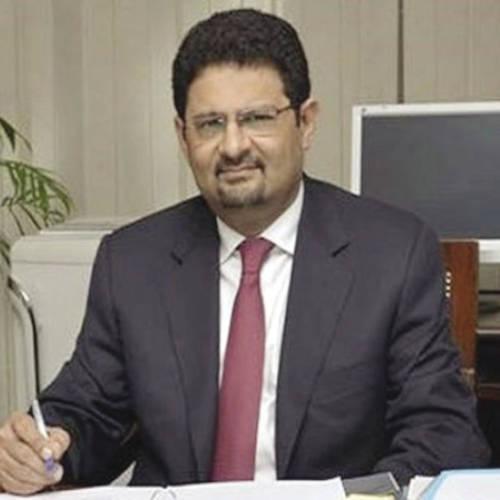
Ismail: wanted Pakistan to import at least vegetables from India to tide over the food crisis
Later, Pakistan allowed cotton imports to India. Organic compounds and raw materials for drugs made up 16.4 per cent of total exports, and pharma accounted for 15.5 per cent. In all, about 228 items were exported to Pakistan, including cumin seeds, petroleum products, tea, fruits and vegetables.
Ministry of commerce data shows that India’s exports to Pakistan rose 72 per cent from a year earlier to $205 million in the fiscal first quarter, led by sugar, organic compounds and pharma. In comparison, India exported just $513 million of goods during the previous fiscal.
Similarly, imports from Pakistan stood at $17.6 million in the June quarter compared with $340,000 a year earlier and $2 million in the whole of FY22. Tankers accounted for $17.2 million worth of imports from Pakistan in the quarter. This is despite a 200 per cent duty imposed by India on imports from Pakistan.
“Despite suspension of trade by Pakistan in 2019, India had been sending a whole range of items to that country based on the notifications issued by their customs,” points out Nisha Taneja, professor, Indian Council for Research on International Economic Relations (ICRIER) and an expert on India-Pakistan trade.
She further said that India never restricted its exports to Pakistan; it only imposed a 200 per cent tariff on Pakistani imports after the Pulwama attack. “For now, all they have to do is to have their customs issue a notification mentioning a list of items they need from India and it will be exported,” Taneja said.
Trade trajectory
Ever since former Prime Minister Atal Bihari Vajpayee made his famous bus yatra to Lahore, attempts to put bilateral trade on a higher trajectory have been made and have faltered. One had presumed that under the new government led by Shehbaz Sharif, a former businessman, there will be a push to trade. The Dubai-based Mian Mohammed Mansha, one of Pakistan’s richest businessmen, had after the new government took over, opined that resumption of trade could settle political and territorial issues between the two neighbouring countries. But trade continues to limp along.
In the face of Pakistan’s official belligerence, India officially remains non-committal about the issues of humanitarian assistance and trade. It has not made any overt pitch for resumption of trade, indicating that the onus lies with Islamabad. India has also not made any formal decision so far on extending assistance to Pakistan. However, according to sources, it is not opposed to considering requests from international agencies about shipping aid via Indian territory.
Prime Minister Narendra Modi has expressed sorrow over the floods and the loss of lives. “Saddened to see the devastation caused by the floods in Pakistan. We extend our heartfelt condolences to the families of the victims, the injured and all those affected by this natural calamity and hope for an early restoration of normalcy,” he said in a tweet.
Sharif thanked Modi in a tweet for conveying his condolences over the human and material losses caused by the floods. “With their characteristic resilience the people of [Pakistan] shall, Insha’Allah, overcome the adverse effects of this natural calamity and rebuild their lives and communities,” he said.
-
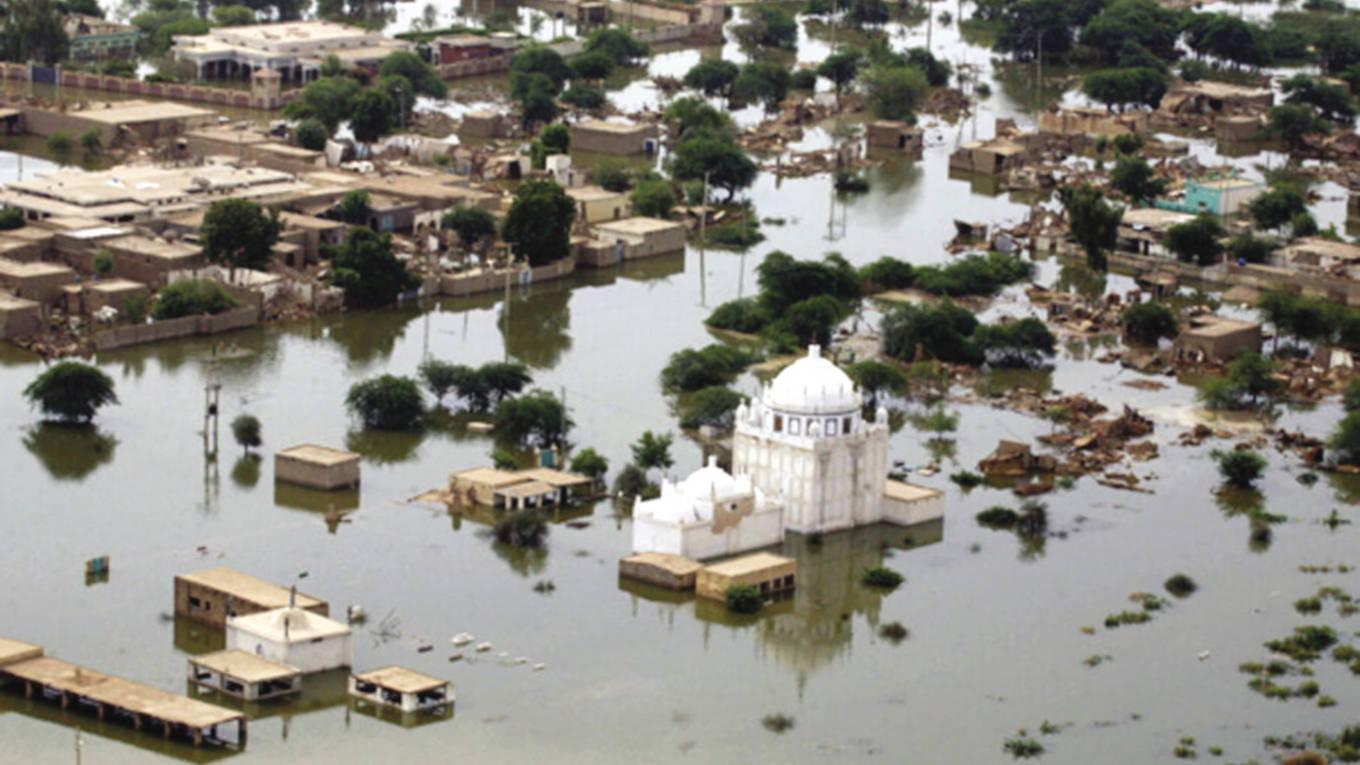
The devastation that Pakistan is facing owing to floods is not just the result of weather change but a significant rise in glacier melting in Himalayas
During a media briefing in Islamabad, Sharif said there would not “have been problems about trading with India but genocide is going on there and Kashmiris have been denied their rights. I am ready to sit and talk with Prime Minister Modi. We cannot afford war. We will have to dedicate our meagre resources for alleviating poverty in our respective countries but we cannot live in peace without resolving these issues.” That is neither here nor there.
Waiting and watching
Talking about Pakistan’s proclivity to link the resumption of trade and the acceptance of aid to the resolution of the Kashmir issue, official sources in the ministry of external affairs say: “There have been all sorts of flip-flops from the Pakistani side on the issue of trade. And when trade is linked to the issue of Kashmir, what do you expect us to do?” The sources recall that Pakistan unilaterally suspended trade with India as part of a set of measures unveiled by Islamabad in response to New Delhi’s decision to scrap the special status of J&K.
Briefing the media recently, Arindam Bagchi, spokesman of the external affairs ministry, said: “Regarding the floods that have hit Pakistan, Prime Minister Narendra Modi has shared his sadness at the devastation caused by the floods. You have seen his comments. He has extended heartfelt condolences to the families of the victims, the injured and all those affected by the natural calamity… For the moment, that’s all I have to say on the issue of assistance.” He added: “As regards the trade element, we have seen various statements on this matter. At this point, I have nothing further to add to those statements that we have seen from Pakistan.”
The official line is that India is now closely watching the signals from Pakistan on ramping up trade. The cautious approach has been shaped by the experience of India in its attempts to help Pakistan. It is being said that when Pakistan was inundated by floods and hit by a severe earthquake twice in recent years, India on two occasions extended a helping hand as a good neighbourly gesture.
How did Pakistan react? The relief material, medicines and food items sent by India were declared ‘inadequate’ and their ‘quality questionable’; a plane-load of rehabilitation material for earthquake victims was not accepted. The announcement of monetary help was loudly denounced as ‘peanuts’ with politicians going to the extent of accusing India of being stingy in helping a distressed neighbour.
An added dilemma facing the Modi government is the instability of Shehbaz Sharif. India is hesitant to invest time and effort in a Pakistani PM who could be side-lined any day.
Indian diplomats say that the situation in Pakistan has got complicated as the terror funding watchdog, Financial Action Task Force (FATF) has put Pakistan in its grey list (since 2018). A lot will depend on how it goes about lifting Pakistan out of the grey list. The FATF team is due to land in Islamabad for on-the-spot inspection of the measures taken to curb terror financing and money laundering. Pakistan’s appeal to the FATF, and money lending agencies is “take a lenient view”. This inter alia means a call to overlook lapses and assure flow of cash into the country.
-
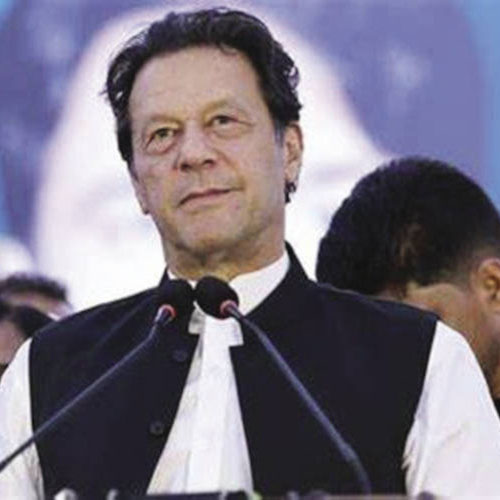
Khan: playing petty politics
US role
It is possible that the United States may nudge the FATF and other agencies to go slow on Pakistan, which of late has made moves to please the Pentagon and the White House. The army under Gen Qamar Javed Bajwa, recently facilitated the launch of the drone strike in Kabul from a Pakistani airfield that killed Ayman al-Zawahiri, the Egyptian successor of Osama bin Laden holed up in Kabul.
Some American strategists are already talking of helping out the ‘former’ NATO ally without harping back on its past mischief. The US decision on providing $450 million worth of upgrades for the F-16 fighter aircraft being operated by Pakistan may be a sign of the times.
As far as its ties with India go, diplomats feel that unless Pakistan’s mainstream politicians come under pressure from civil society and the business community to open up to its neighbour, it is likely that they will continue to engage in the competitive politics of India-bashing.
There is a section of civil society and business community in Pakistan which understands that while differences over Kashmir are not going to go away soon, it is in Pakistan’s interest to trade with India. The more optimistic among them even envisage substantial economic advantage flowing from trade ties with India. But they can raise their voices at the risk of being hounded for being ‘agents’ of India.
This is where our ministry of external affairs seems to have gone wrong. The Manmohan Singh government had kept backchannels of communication open with Pakistan all along. Civil society groups often met and exchanged ideas, as did media associations and business delegations. The veteran diplomat and former high commissioner to Pakistan, Satinder Lambah, steered the backchannel process between 2005 and 2014.
Bilateral relations saw a thaw. Lambah and his Pakistani counterpart, Tariq Aziz, held 30 secret meetings during which they hammered out a draft agreement on Jammu and Kashmir. Lambah is reported to have handed over the agreement to Modi when the latter assumed office in 2014.
That was all but frozen. Of course, Modi did make a surprise visit to Lahore to break bread with the Sharifs, using the well-publicised services of Sajjan Jindal. But that was about all.
However, a source considered close to Modi says: “While the people of Pakistan are looking towards India, the government and army establishment in Pakistan should change its mindset towards India in this hour of crisis. Prime Minister Modi’s track record during natural disasters has been exemplary. Last year, when the Taliban rulers in Afghanistan appealed for help, Modi sent relief materials on an emergency basis. At that time, Pakistan refused to open its land route for supply of Indian relief material to Afghanistan. It is now time that the Pakistan government should change its outlook and send a formal request to India for humanitarian assistance. I fully believe, Modi will not hesitate in accepting the request.”
-

Taneja: India never restricted its exports to Pakistan
The backchannels should get active once again. Pressure should be brought to bear on Islamabad and key players there via those who can exercise it. Khan should be reminded that some of his best friends were from India when he was a young cricketer, partying away till late nights in Mumbai.
While Pakistan’s doublespeak and the political flux there could be weighing on the minds of those who matter on Raisina Hill, the fact is that countries such as the UK, the US, China, the UAE, Qatar and Turkey have already dispatched aid to Pakistan.
Given that the crisis will only deepen at this point, both New Delhi and Islamabad must put aside their domestic considerations, and seize the moment to help those stranded in the flooding as best they can. India cannot pride itself as being the ‘first responder’ in the neighbourhood — as it has been for Nepal, Sri Lanka, the Maldives and Afghanistan — if it fails to see the suffering right at its land boundary with Pakistan.
As for Pakistan, it would be churlish and short-sighted on the part of its leaders and the army to reject an opportunity to lift the trade ban with India that has only hurt its own interests, and to give up a source of affordable supplies at a time of such calamity. And it would be both tragic and ridiculous if the so-called enmity between the two countries would not allow them to work together at a time such as this, even as their governments allow their cricket teams to play each other for financial considerations.
Significantly, Modi and Sharif are due to travel to Uzbekistan soon for the SCO summit. While a more lasting dialogue, that has been suspended between the two countries for nearly a decade over the terrorism issue, is unlikely, the leaders can always find the time to discuss ways to mitigate the catastrophe at hand.
-
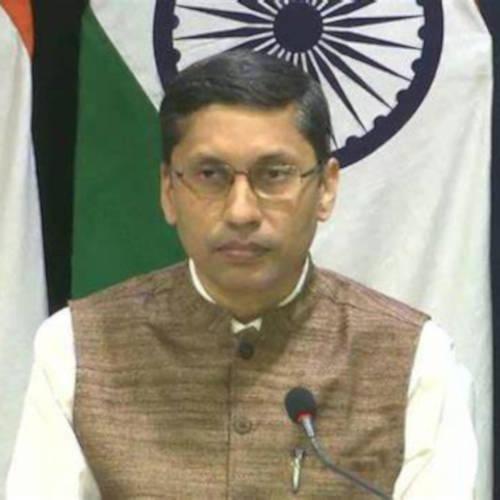
Bagchi: closely watching the signals
Pros and cons
PROS:
• It will lead to enhanced bilateral trade and business opportunities
• Many Hindu, Muslim, Sikh, Sindhi families with ties to Pakistan will be able to freely visit the land of their forefathers
• It will assuage the feeling of hurt which Muslims have been harbouring against his dispensation
• Improved ties with Pakistan will burnish Modi’s reputation among the liberal democracies of the West
• It will provide the right atmospherics for India’s presidency of the G-20.
CONS:
• India will have to do most of the heavy lifting
• The BJP’s hardcore constituency may feel let down at the dilution of the party’s core stand
• Competitive politics may force Pakistan’s leaders to denounce India’s unilateral gestures as ‘too little’
• In business and commerce, the superiority of Indian companies may lead to India being accused of playing Big Brother
• Pak-based terror groups may take advantage of the relaxed situation
